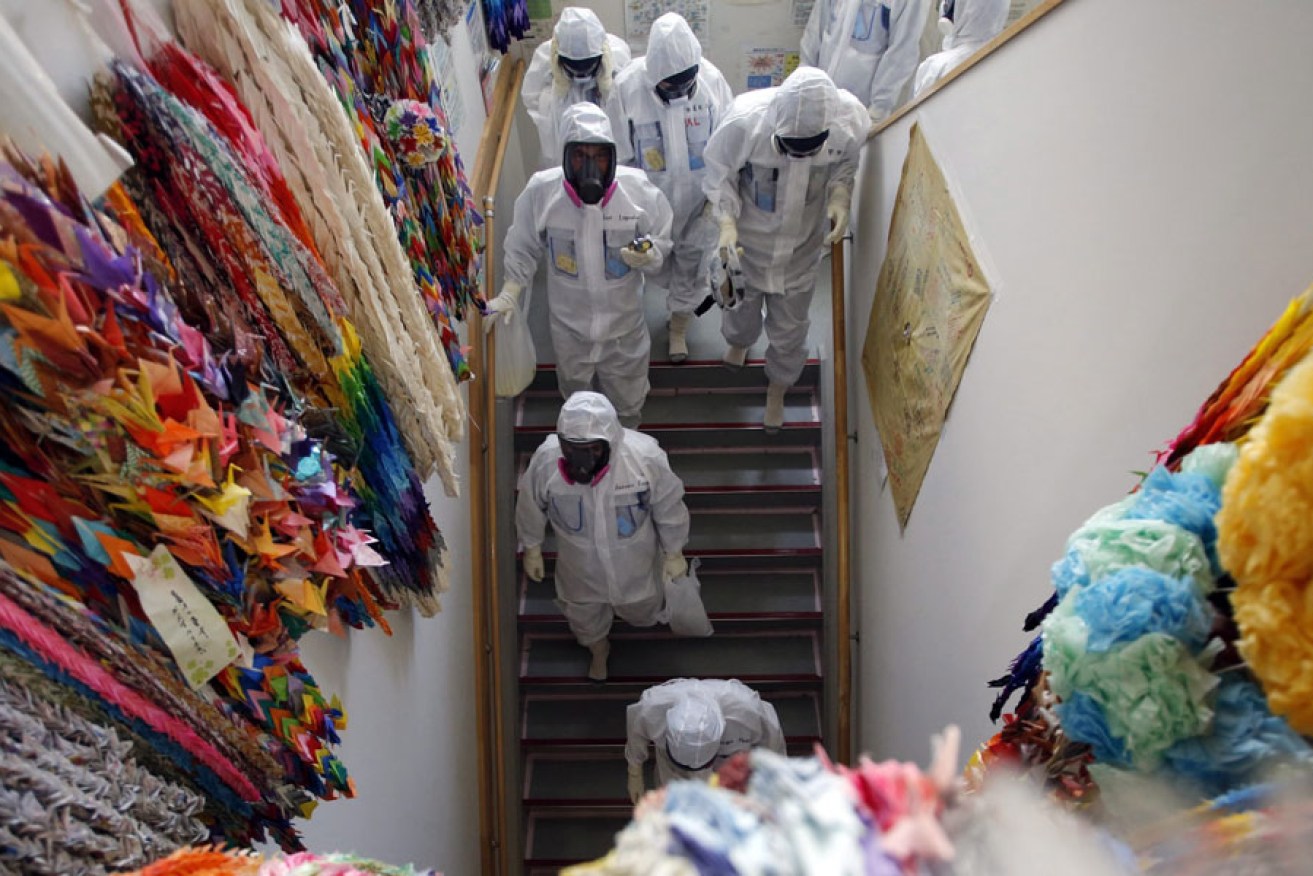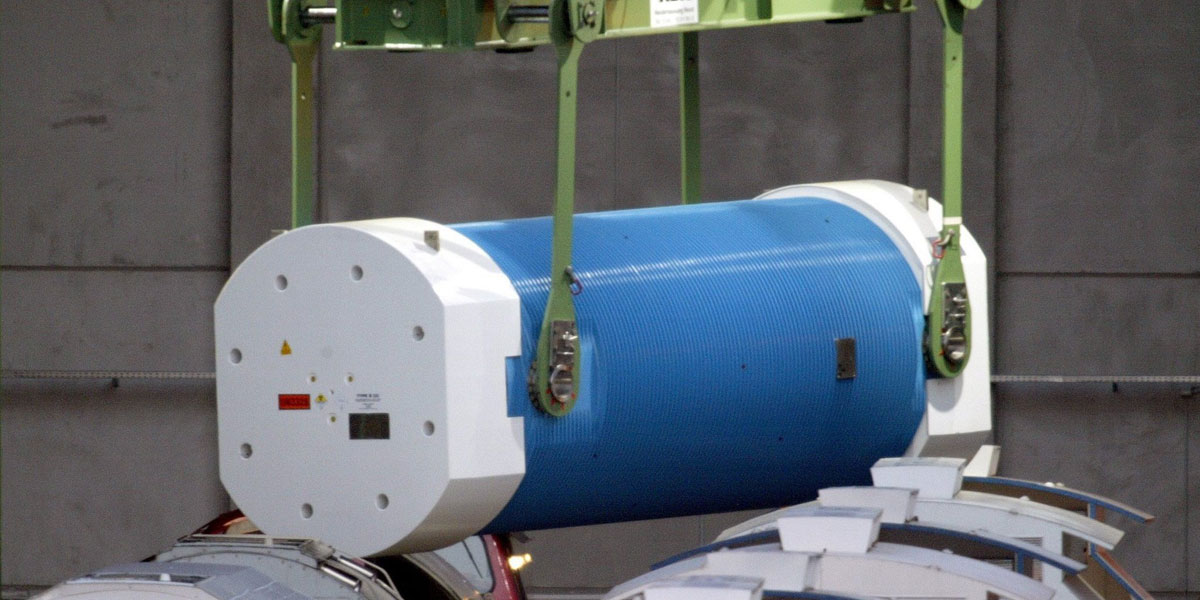In an InDaily article yesterday, Professor Mark Diesendorf sought to sow doubts about the submission from Senator Sean Edwards to the Nuclear Fuel Cycle Royal Commission.
The submission was conceived over about 18 months and prepared by a specialist team. The Senator himself and his staff subjected the document and process to their own searching interrogations. No politician steps into this space lightly. The principal target audience was the most testing situation imaginable – technical experts operating under the auspices of a royal commission.
So while unsubstantiated, unreferenced seeds of doubt are of no concern, we appreciate the opportunity to offer a response. We think this is a hugely exciting opportunity for South Australia and we hope many readers will take a strong interest.
Diesendorf is correct that the economic underpinning of the proposal is the provision of an approved, licensed facility to provide centralised custody of used nuclear fuel. As Diesendorf says, the cask technology and approach is well-established. There are decades of operating experience and licencing in the US for use for up to 120 years.
Diesendorf states these casks will “corrode and release their deadly contents”. This is grossly ignorant and appears to be an effort to fearmonger. The robust Type B casks for storing used fuel have been subjected to the most dramatic impact testing imaginable and passed with flying colours (see video below). This technology also took the full brunt of the tsunami at Fukushima and emerged unscathed. The very nature of dry-cask storage means the heat and radiation loads have been so greatly reduced in the first few years post-irradiation that such a relatively simple solution is possible. They will not “corrode and release deadly contents” – they will be carefully monitored as part of the operations of the facility.
The demand for such a multi-national facility is rock-solid. Nuclear power is an essential, expanding source of reliable clean energy for many of our Asian neighbours. They want both security of fuel supply and a reliable back end solution to enable them to pursue their own development goals without regressing economically and environmentally to fossil fuels.
While such dry-cask facilities are established, they are filling. For our potential customers the process of expanding storage facilities and operating them for longer time frames remains politically challenging and is of little interest if it can be avoided. They do not possess the long-list of natural and institutional advantages of Australia for pursuing this option.
They operate under rigid nuclear licensing based on old approaches, rendering the cost of changing processes remarkably high. Some operate under iron-clad treaties constraining them from progressing down the recycling pathway.
There are well-established used fuel management budgets in potential partner nations and these budgets could be invested in South Australia. These economic premises were brought to the table by the research team and then tested in the real world by Senator Edwards. He received responses that were affirmative in the extreme. If this market does not make sense to some critics, it is because they have failed to understand its nature.
The next key element of the proposal involves the prompt re-investment of a portion of revenues into bringing fuel recycling technologies and reactors to commercial fruition. The result will be large quantities of reliable, greenhouse-free energy with no upstream fuel mining and utterly minimal and short-lived waste streams.
Contrary to Diesendorf’s assertions, the technology is ready for commercialisation via the PRISM design from General Electric Hitachi. To fund that commercialisation pathway through the revenues earned from used fuel custody is sensible, elegant and wholly moral: we use the money from the problem to commercialise the solution.
Diesendorf cautions this is a “poor prescription for the economy”. We prepared nine scenarios to assess the net-present value of the integrated project. Eight of the nine deliver multi-billion dollar profits, with the mid-case delivering net benefits of $28 billion to our state. Every single cost and revenue assumption is disclosed and sourced. We revised the scenarios to tests whether we could simply give the power away. The analysis suggests this is wholly plausible and still highly profitable.
So rather than being “stuck” with the material, we will have cannily endowed ourselves with an inexhaustible supply of fuel. We will have reinvested the proceeds to meet some of the greatest needs in the world: commercialising the technologies for scalable, reliable clean energy and responsible management of used-nuclear fuel. In so doing we will have established cutting edge reactor manufacturing and fuel fabrication facilities, and established South Australia as a critical hub of advanced nuclear science and technology.
It is a compelling project, economically and environmentally. We give the last word to Senator Edwards himself, taken from the foreword to the submission:
Such economic and industrial transformation is a lot to claim. That’s why this proposal is so detailed… Every figure we have used is disclosed and sourced. Every source is fully referenced… If a solid argument is made to change an assumption, it can be changed and the outcome can be tested. I openly invite and encourage discussion and debate over the proposal…When those conversations have concluded, when the outcomes have been tested and when the transformative opportunity for South Australia remains before us, then the real question must be asked: do we have the courage to go for it?
We positively encourage all InDaily readers to grab a copy of the submission and read it. Such transformative change will require the South Australian community to make a bold play, together.
Ben Heard runs the Adelaide-based consultancy, ThinkClimate Consulting.






